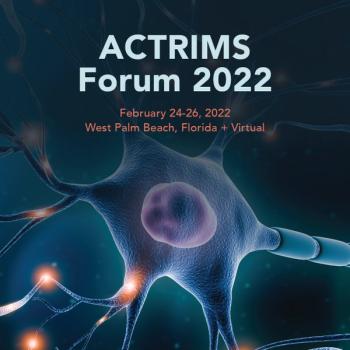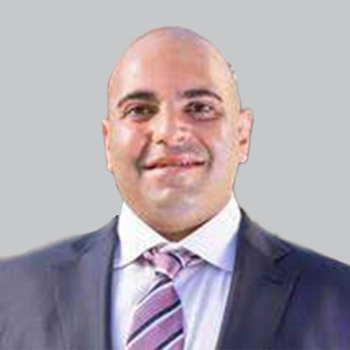
Investigators caution health care providers to consider specific risks of severe COVID-19 infection before initiating this therapy.

Abby Reinhard, Assistant Editor for NeurologyLive, has covered medical news for MJH Life Sciences, NeurologyLive’s parent company, since 2021. Email her at [email protected]

Investigators caution health care providers to consider specific risks of severe COVID-19 infection before initiating this therapy.

Investigators conducted a study to assess the effects of CR diet on immune cell subsets, concluding that observed changes could be mediated by changes in classes of lipid metabolites.

Konstantin Karmazin, MD, outlined the potential future initiatives for Prime PD, including incorporating advanced practice providers into the model.

Despite the majority of program directors reporting the importance of training in cerebral palsy, they also felt that residents were not very well prepared to manage the condition

The study found the approach could be utilized in the intensive care unit without adverse effects on neurological or functional outcomes.

Konstantin Karmazin, MD, clinical neurologist and chief medical officer of Prime PD, outlined the goals of the platform, as well as the variety of fitness programs offered for subscribers.

Tahseen Mozaffar, MD, FAAN, spoke on recently reported positive interim safety data from the phase 1/2 FORTIS study, noting that the treatment was thus far safe and well-tolerated in patients.

Following the publication of 2 reviews from the International League Against Epilepsy Task Force on Stigma in Epilepsy, Joan K. Austin, PhD, RN, FAAN, spoke on the need to better understand this issue and address it in clinical practice.

Although pain is a known problem for children and adolescents with the disease, not much is understood about pain in adults with CP.

Findings from a new post hoc analysis of data from the randomized-controlled period of the N-MOmentum phase 2/3 pivotal trial (NCT02200770), suggest the Horizon agent is effective in NMOSD.

Joan K. Austin, PhD, RN, FAAN, commented on this issue within the field, discussing key findings from 2 recent reviews completed by the International League Against Epilepsy Task Force on Stigma in Epilepsy.

There was no significant association between Black race and clinical outcome following mechanical thrombectomy.

The data safety monitoring board reviewed 90-day outcomes for the first 200 patients, recommending that investigators continue the study as it currently stands.

The fractional tablet aims to allow for more precise medication dosing for patients with Parkinson disease who often require several doses daily.

Biogen proposed a 3-prong approach to generate ‘real-world evidence’ and answer remaining questions from CMS.

For pediatric patients with LVO, 4 out of 5 fulfilled adult thrombectomy selection criteria, aside from age.

Investigators found that increased age, greater initial NIHSS score, arrival by EMS, and shorter time to ED arrival all contributed to increased treatment rates.

Hamid Khoja, PhD, chief scientific officer of FibroBiologics, spoke on the development and studies of CYMS101, which the company anticipates evaluating in a larger clinical trial in 2023.

When compared with warfarin, treatment with DOACs was associated with a favorable safety profile, as well as similar clinical and radiographic outcomes in patients with cerebral venous thrombosis.

Results from the retrospective chart review were presented at the 2020 International Stroke Conference, held in New Orleans and virtually.

FORTIS (NCT04174105) is a first-in-human study, enrolling 4 participants with late-onset Pompe disease to assess the Astellas Pharma therapy.

Having recently been awarded a grant from the Michael J. Fox Foundation, Mary Hamby, PhD, VP of research at Cognition Therapeutics, and Lisa Ricciardi, the company’s CEO, sat down to discuss the potential disease-modifying effects for this patient population.

In addition to those with MS, the approval also indicates the formulation for the treatment of patients with spinal cord injuries and other spinal cord diseases.

Investigators concluded that the prompt was ‘well-suited’ for use in clinical care, but additional research is needed to better understand the association between PELHS-QOL-2-Medications and race.

Investigators noted that while epilepsy did not increase the risk for sleep disorders, there was a strong association identified with TSC-association neuropsychiatric disorders, necessitating early detection.

Matthew Klein, MD, MS, FACS, the COO of PTC Therapeutics, discussed a supplemental new drug application for the treatment in a younger group of patients, which has been granted priority review by the FDA.

In the RAISE trial, patients treated with zilucoplan exhibited clinically meaningful and statistically significant improvement from baseline in Myasthenia Gravis-Activities of Daily Living Profile total score at week 12, when compared with those who received placebo.

Although research illustrates the persistence of inequities between women and men in neurology, 3 women leaders shared encouraging thoughts and experiences highlighting the progress made in recent years.

Although findings suggest better efficacy of consyntropin when compared with vigabatrin, the randomized trial was underpowered due to incomplete enrollment.

The association was found independent of vascular risk factors, suggesting a dose-response association between stroke severity and recurrence with risk of dementia.